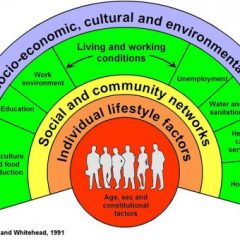As a native Scot hailing from West of Glasgow, the concept of a “dry January” always seemed like a far-off ideal! And that was well before ‘dry’ had any association with abstention from alcohol. As anyone who has braved the January sales in Suchiehall street will know, venturing out without an umbrella or serious hooded waterproof on a January day in Glasgow is asking for a ‘doukin’ (great Scottish word for succumbing to a rain burst while inadequately prepared!). Given Scotland’s long- established and virtually unsurpassed reputation for heavy drinking however, the prospects for the latter definition of dry January holding any sway – seem just as remote as it climatic equivalent! With an inescapable common-sense consensus that a significant period of extended sobriety could only be of benefit to our most over-worked (and almost miraculously regenerative) internal organ, namely the liver – the health rationale underpinning the alcohol related interpretation of ‘dry January’ – seems irrefutable. Indeed, the late Scottish Comedian Rikki Fulton’s sketch entitled New Year’s day sums up perfectly the rationale and motivation that many might share for giving up the booze [1], at least for a while, as the New Year dawns. Learning of the events of the previous night’s ‘Hogmanay party’, during which he had gambled away his car in a poker game and set fire to and destroyed his own uninsured house, the revelation that he had won a 5 litre bottle of whisky in the raffle was precious little compensation! For most people choosing to abstain from alcohol in January however, their reasons are usually less extreme! Indeed one of the criticisms of the concept of “dry January” is that those most likely to successfully abstain are probably already light drinkers in any case and the resulting likely health gains are correspondingly small [2]. At the other extreme of course, for those who are dependent on alcohol (by clinical definition), impersonating the Christmas leftovers by going ‘cold-turkey’ with respect to alcohol, can have serious adverse health consequences such as convulsions etc. and should be avoided. An evaluation by de Vocht and colleagues published in 2016 showed that while ‘dry January’ led to an increase in attempts to cut down, any detectable impact on consumption remained elusive [3]. In an era in which excess alcohol consumption has become normalised and the price of alcohol in real terms has never been cheaper [4] (in the absence as yet of minimum unit pricing for most of the UK), the overwhelming consensus is that most of the population would benefit from reducing their alcohol consumption, particularly if the resolution held all year round! From my own perspective, as a public health practitioner and academic based in the North East of England (with engrained cultural attitudes to alcohol not dissimilar to my native Scotland), January 2019 has seen my first serious effort to maintain a drink-free start to the year. Since I could probably be described as a ‘light social drinker’, this flags up one of the criticisms of the ‘dry- January’ message cited above, in that those most likely to comply are not likely to be those most in need. A recent quote from a leading liver specialist however that “all those who drink regularly are dependent to some degree [5]…” was a helpful reminder (if not a wake-up call) that we should all maintain a measure of vigilance over our measures – even if we did survive Hogmanay relatively unscathed!
John Mooney. University of Sunderland. @StandupForPHlth. Jan 2019.
1. Scotch & Wry Sketch: New Year’s Day, BBC Scotland Published 15th January 2009 https://www.youtube.com/watch?v=fKTWJr2pTUQ
2. ‘Does dry January work? We ask the experts’ by Nicola Davis, The Guardian (Society section) 19th Jan 2018. https://www.theguardian.com/society/2018/jan/19/does-dry-january-work-we-ask-the-experts
3. de Vocht F, Brown J, Beard E, Angus C, Brennan A, Michie S, Campbell R, Hickman M: Temporal patterns of alcohol consumption and attempts to reduce alcohol intake in England. BMC public health 2016, 16(1):917.
4. s Alcohol too cheap in the UK? http://www.ias.org.uk/uploads/pdf/News%20stories/iasreport-thomas-stockwell-april2013.pdf
5. This quote was from Prof Nick Sheron, Hepatologist at University of Southampton and is quoted

